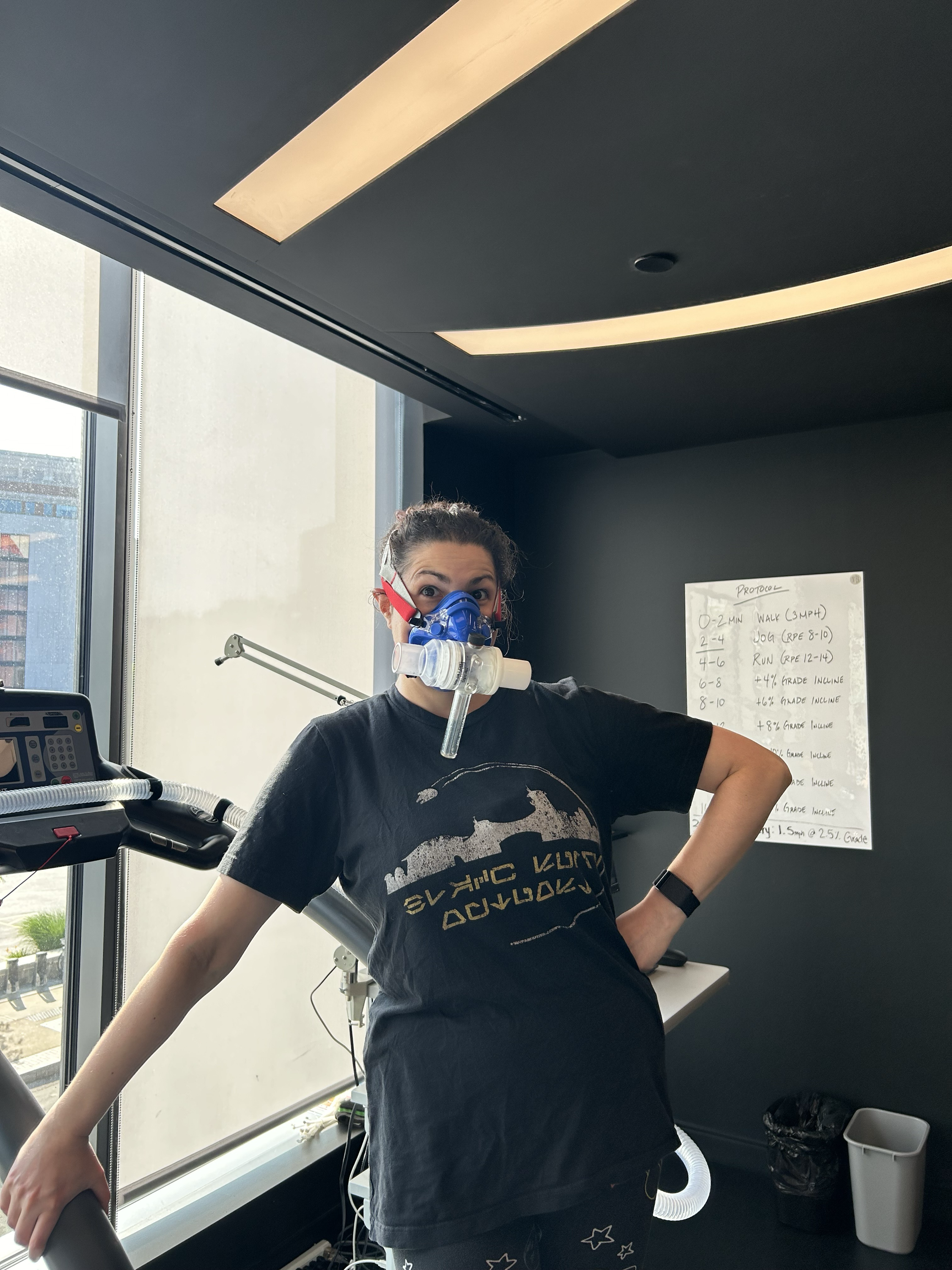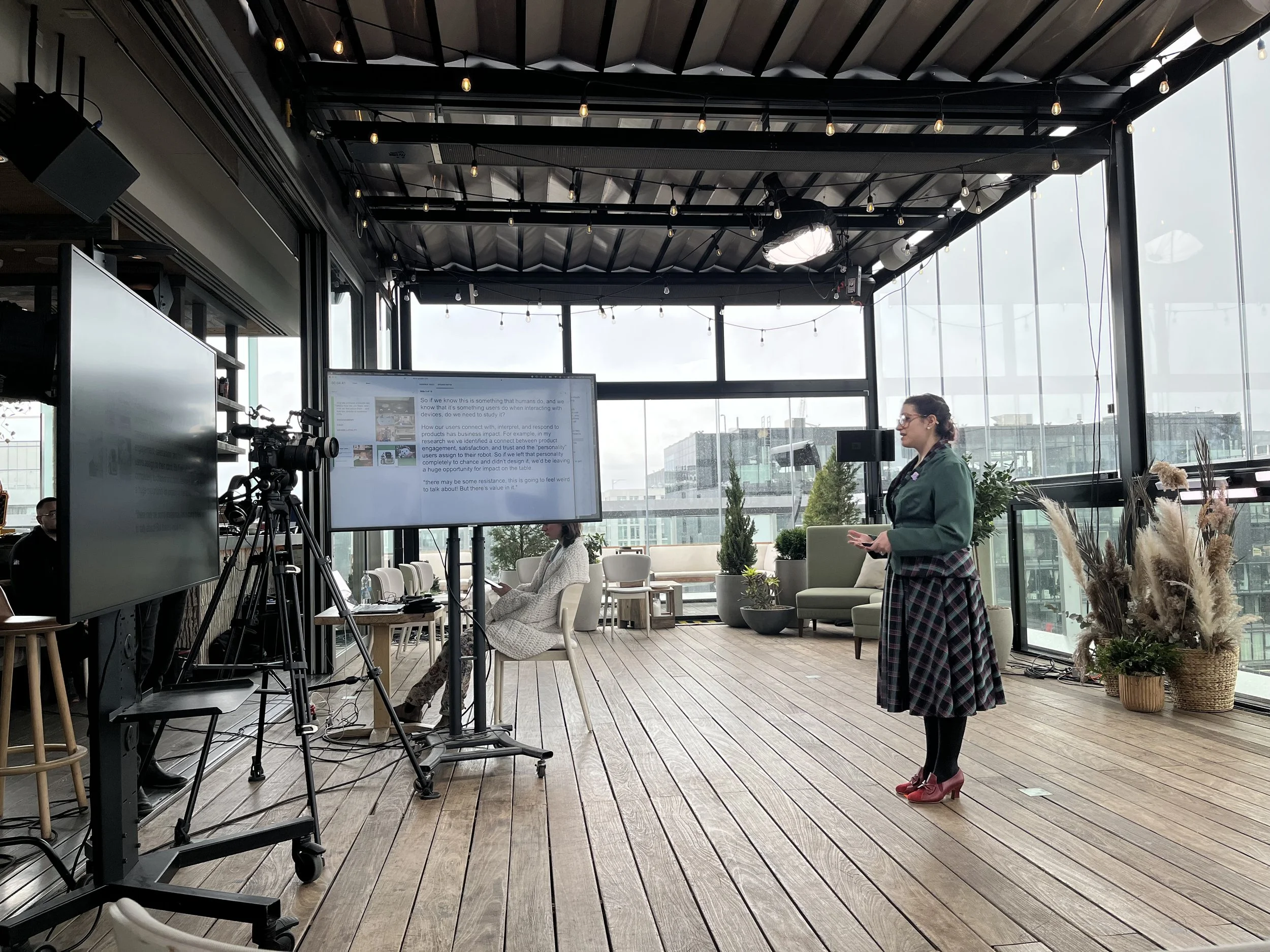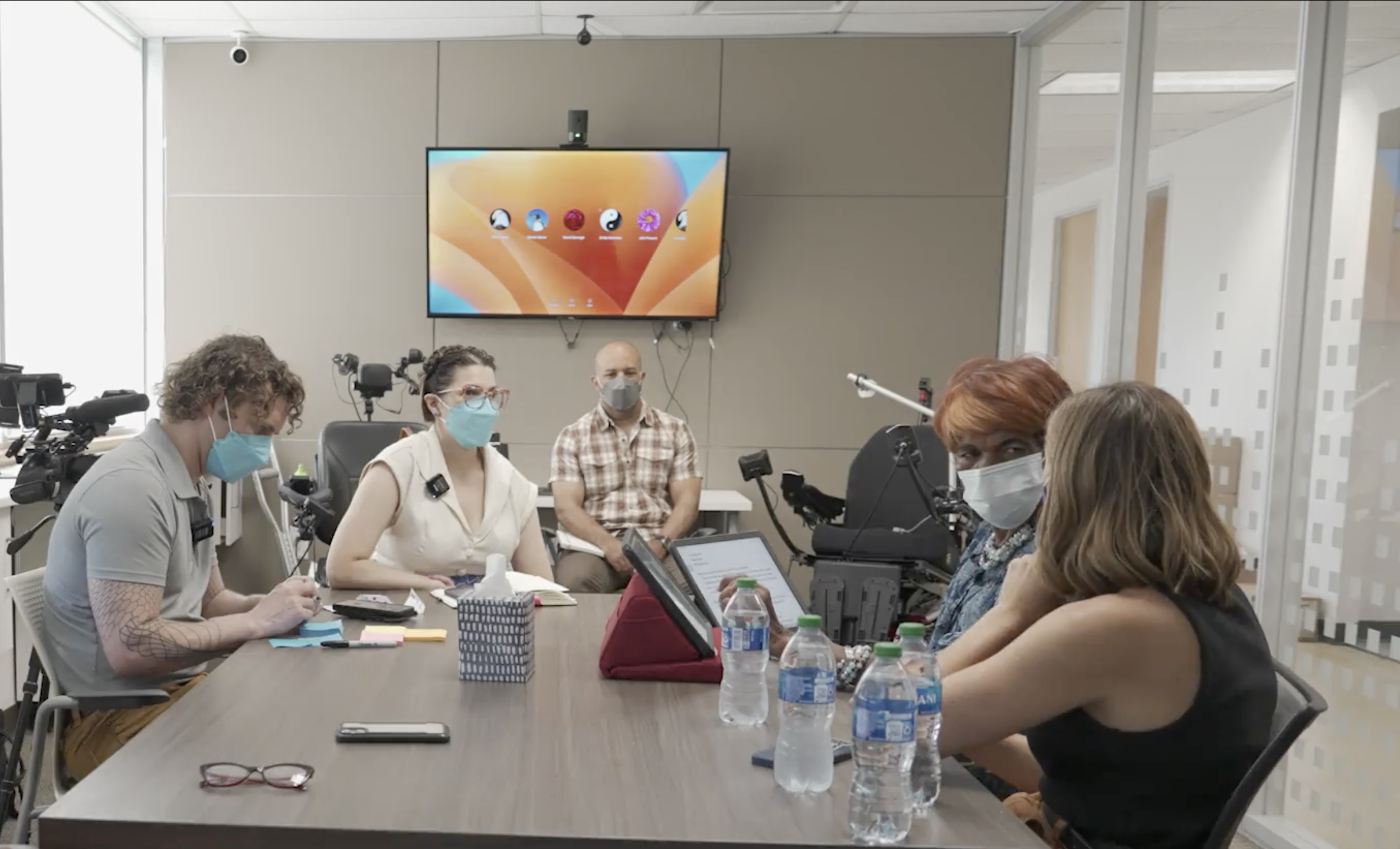Stories and Science—
that’s how I define design research. Impactful research is curating human stories and sharing diverse voices in a way that provides structured data, inspires empathy, and helps product teams remember who they’re building for. What a study looks like changes with every question; there’s no one-size formula for every problem. My research practice mixes validated best practices from cognitive research, measurement tools that support critical thinking and unbiased reasoning, and creative activities to discover new solutions. As a research leader I focus on creating a collaborative space for methodological innovation and deep insights, ensuring we set organizational standards for scientific validity and research ethics.

Research teams are powered by collaboration, precision, and creativity. My goal is to be the kind of leader that unlocks that power.
Like many people in UX, I’m here because I want to make a difference. As a research practitioner this means getting to the root of an experience: how users’ perceptions shape their sentiment, the role of emotion in the task, the impact of culture on user needs. My favorite projects are the most “squishy,” the ones that require assessment of user actions, emotions, and environments. I thrive on challenging questions, leveraging mixing methods to help stakeholders find answers. From a cognitive science background, my first projects in the HF/UX field were focused on collaboration and “user in the loop” systems that balance autonomy with giving the user information and control. Throughout my career I’ve kept that focus on centralizing the user within autonomous systems across domains - from government agencies to software teams to family homes to athletes and wellness journeys. Our devices need to fit into our human lives, into the environments we shape for ourselves, the priorities that earn our attention, and the messy, intertwined routines that shape our days. It is important to me that, as we automate, we center diverse voices to understand how new technology can be helpful, useable, and empowering. It takes more than an understanding of automation: we must consider personal drivers, cultural values, and aesthetic trends in how we live with tech (and tech lives with us).
Research teams make future products possible.
So far I’ve had the privilege to collaborate closely with stakeholders across organizations and use research to drive impactful decision-making. I’ve had the joy of seeing my work help to shape products that clean my friends’ homes and empower my parents to live healthier lives. As a team leader, my hope is that I can be the champion that helps other researchers do the same. I want my teams to feel safe to take risks, supported to push back when they have concerns, and connected to product impacts of their work. I believe this takes many of the same skills I’ve honed as a researcher: active listening, deep empathy, persuasive storytelling, knowing how and when to leverage data. There are also a lot of new challenges in shifting from personal practice to coaching others - but if I wanted things to be easy, I would never have become a researcher. After all, I’m here because I want to make a difference.








